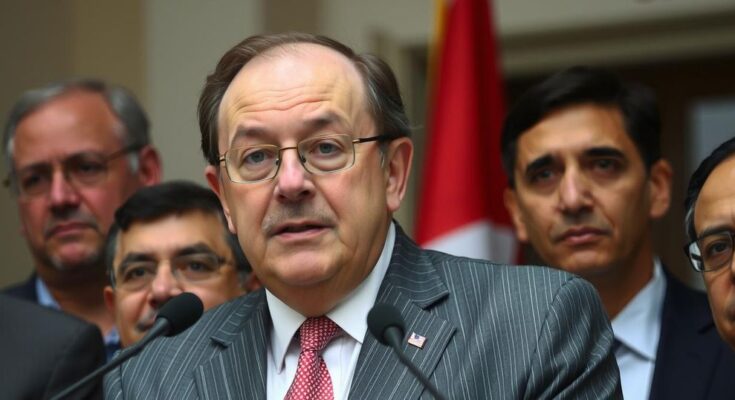Lebanon elected Joseph Aoun, a U.S.-supported candidate, as president, ending over two years of political deadlock and indicating a shift from Iranian influence to potential Western alignment. His election received more than two-thirds of votes from lawmakers, clearing past hurdles, and provides an opportunity for reform amid ongoing economic challenges.
On the backdrop of a prolonged political impasse, Lebanon’s lawmakers have elected Army Commander Joseph Aoun as the new president, marking a pivotal shift in the country’s leadership landscape. Aoun, who is aligned with U.S. interests, received more than two-thirds of the votes from parliamentarians, successfully overcoming obstacles faced in previous election attempts. This decision not only concludes a two-year presidential void but also signifies the diminishing influence of Iranian politics in the region, heralding a potential reorientation towards Western-backed governance.
Joseph Aoun’s ascension to the presidency follows an era characterized by instability and deadlock, impacting Lebanon’s political and economic conditions. His election is crucial for stabilizing a nation plagued by economic distress and sectarian strife. Analysts view this development as a crucial juncture for Lebanon, suggesting that Aoun’s leadership could pave the way for reforms and foster stronger ties with the West. The political landscape has thus taken a clear turn, with the emphasis shifting from Iranian-backed factions to U.S.-supported initiatives.
Lebanon has been experiencing a considerable political crisis, with the president’s seat unoccupied for over two years due to an inability of lawmakers to reach a consensus on a suitable candidate. This vacuum has led to heightened economic challenges and social unrest among the Lebanese populace. The election of Joseph Aoun as president represents not only a resolution to this stalemate but also a strategic alignment with U.S. interests, symbolizing a potential realignment in Lebanon’s foreign relations and domestic policies. The reduction in Iranian influence is viewed as an essential factor in this election, reflecting broader geopolitical dynamics in the region.
Joseph Aoun’s election as Lebanon’s president marks a significant change in the nation’s political trajectory, providing hope for stability after years of impasse. Supporting a U.S.-backed candidate indicates a shift in Lebanon’s alignment in regional geopolitics, specifically a distancing from Iran. The upcoming term for Aoun presents opportunities for critical reform and an alleviation of the ongoing economic crises faced by the Lebanese people, while the international community watches closely to see how this transition unfolds.
Original Source: www.poncacitynews.com




